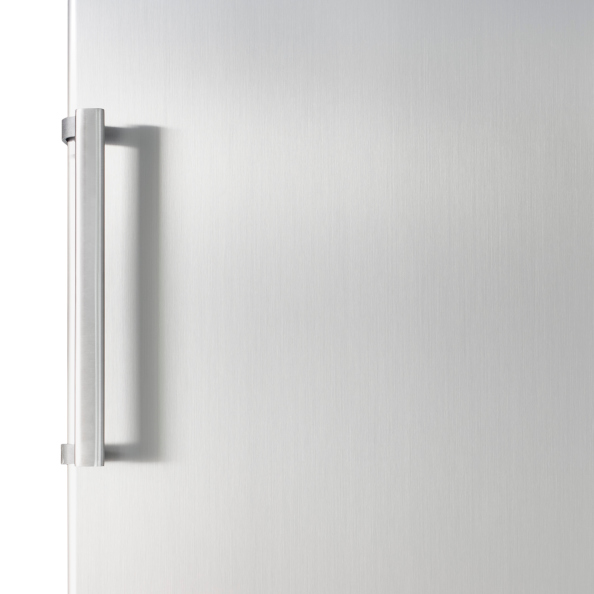Full residential reefers have been standard on high-tiered coaches for many years and on“all-electric” builds (no propane onboard). These units required extra batteries and inverters to meet the additional off-grid electric load. Today’s home-type refrigerators, however, are far more efficient and require less power to operate than years ago. Residential refrigerators today operate at about one-third the power consumption they did in 1990. Therefore, we are now seeing a growing popularity of these electric-only reefers, not only in new coaches but as upgrades to existing units.
The residential refrigerators offer some great advantages over the absorption type. Here are a few:
- Far more inside space with the same-size exterior.
- Not as level sensitive.
- Far more inexpensive to replace than high-priced absorption units.
- More modern-frig features.
- Better temperature precision and cooling accuracy.
So, if you are thinking about buying a new coach, check out the availability of getting a residential fridge. If your current rig has an RV-type absorption unit, you may wish to consider joining the many who have opted for upgrading to a residential model. Much, of course, depends on your RV application. While the electric residential fridge is superior in many ways, it cannot necessarily deliver the endless off-grid needs of some die-hard dry campers.
Either way, it’s worth checking out. If you’re thinking of upgrading to a residential refrigerator in your current rig, be sure to add an appropriate-size inverter and battery bank, if needed. This is not that difficult and in most cases can be a do-it-yourself project.
It would certainly be a cool project, no pun intended. Enjoy.
